10 years ago, SEO was completely different. It was all about killing your competitor's SEO.
We did not have access to the strict guidelines of modern times, and Google's Algorithm was still in its infancy phase.
The entire search engine optimisation world was like the wild west. Everyone wanted to do whatever it takes to rank number one. And this led to using black hat SEO.
Nowadays, every single intern in the industry will tell you that black hat SEO is wrong. Back then, there was no proof that it was wrong, and it was actually considered to be legitimate.
At the end of the day, nobody cared what you were doing, as long as sites went up in rankings. Business owners were happy, SEO specialists were happy, everyone was happy.
This brings us to negative SEO, which was a part of day-to-day operations in SEO agencies. Simply put, this means using different black hat SEO techniques to lower the search rankings of your competitor. Several unethical and stealthy tactics were created, and the SEO professionals that worked in the industry then were all using them.
The problem is that negative SEO is just like kicking a man when he is down. You get results, and you feel good about yourself for the competitor's website going down in rankings, but you are left with a website that does not rank. Sure, you will get some extra clicks, but you still need to do a lot of work on your site.
Negative SEO does not help you rank.
In having said all that though, we have to acknowledge that there are still many "grey" areas in SEO. And the truth is that there are ethical ways to kill your competitor's SEO without having to resort to black hat SEO, negative SEO, or any of the countless questionable tactics out there.
Let's talk about 3 effective strategies to kill your competitor's SEO, all ethical, none black hat, and all legitimate. Basically, let's take advantage of what others did wrong and put things right.
1. Take Advantage Of Local SEO
Although local SEO is a great way to beat your competition, it is still an underused tactic. Most appointments and client talks have always been on the topic of ranking higher for the most competitive keywords, on a global level.
Whilst the ambition is there to succeed on a global level (who doesn't?), it all starts with simple baby steps. By ranking locally, you not only pick up leads and enquiries from around your region but also you receive enquiries from other sources - local citations, business directories etc...
Did you notice that when you search for something like “liposuction,” you get presented with all local search results first? The businesses that you see all used local search engine optimisation. You can do the same to beat your competition.
Local SEO is, in large part, different than global SEO. There are numerous things that you need to know about it. However, the number one thing you have to be aware of is this acronym: NAP. Now that I am halfway into writing this content, I do feel like a NAP, but it doesn't stand for this. NAP means Name, Address, and Place. Here's an example of correct and incorrect NAP.
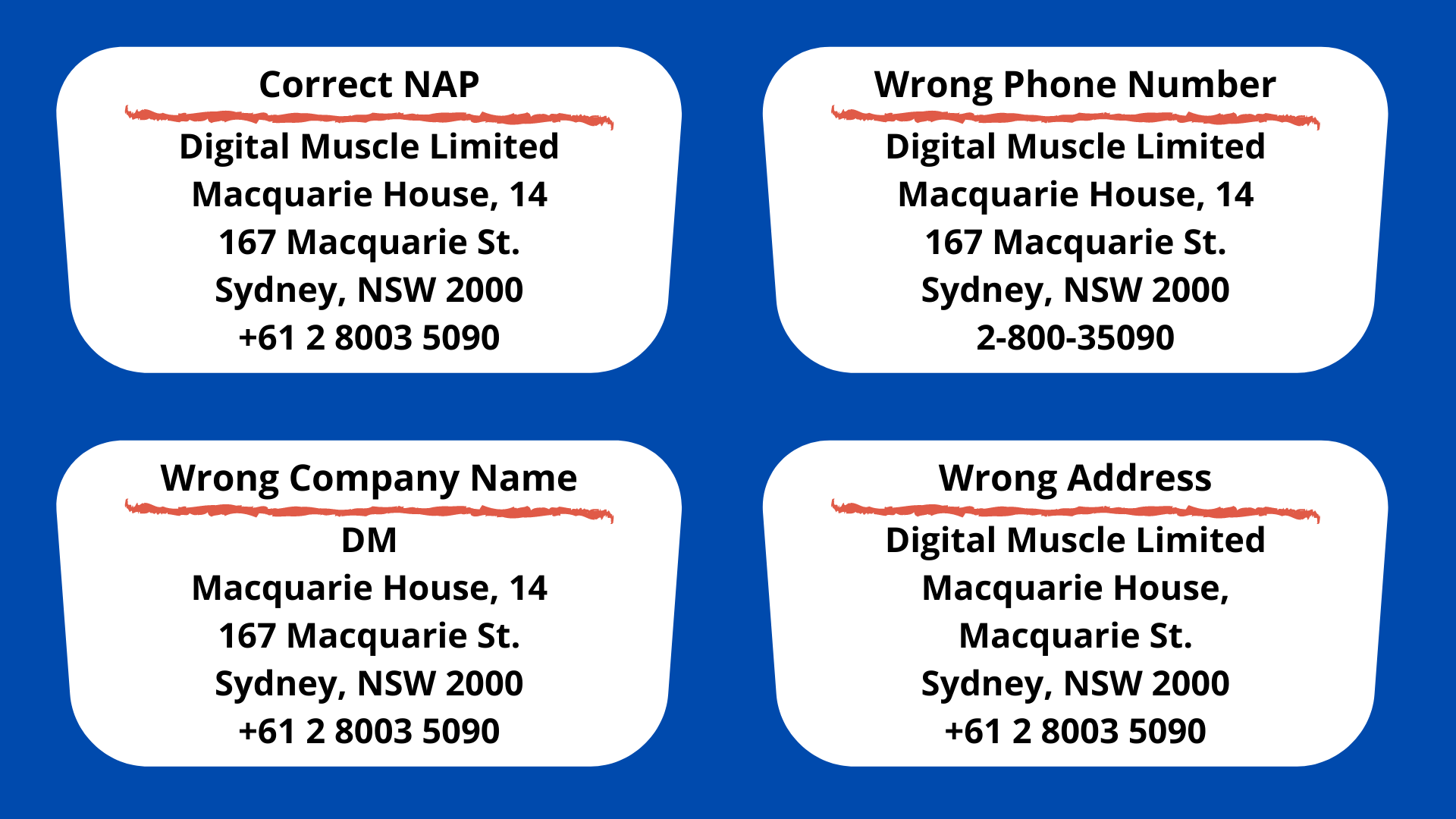
Your business NAP has to be clearly visible on your website, especially in key areas like the contact page and the homepage. Usually, it is placed in the footer, but it is not a rule. Also, it would be best if you used the correct NAP in your Google My Business listing. Here's an example of such a NAP placed in the footer of a restaurant's website.

When someone performs a search and looks for a business, he/she will find yours first, if you used local SEO and your competitor did not. This is why everyone is now talking about local search engine optimisation. More about local SEO in future posts - keep your eyes peeled to the blog section.
2. Personally Refer People

To rank on Google, your site, and all interactions with it need an organic connection. This is especially the case with recommendations and referrals. Similarly to the regular job interview, a recommendation is precious.
The more recommendations you have, the better chance you have during a job interview. We all know that! But did you know though, that the recommendation can be preventative for your site's SEO strategy?
Why? Well, picture the below scenario.
For a living you sell clothes. A potential customer is looking for a site that offers good deals on clothes near where he lives. How likely is that the customer finds your site? How likely is that when you have 20 stores like yours in the same city? Chances might be high or low, but it is never 100%.
In fact, the percentage is unknown at this stage, and it depends on where you rank at the time. Simply put, there is no guarantee a potential customer will find your website.
Now let's think of another situation. The same customer asks a question on Quora about what fashion store is recommended in your region. When you post a response from your personal account, the customer will almost surely at least visit your site.
Obviously, you cannot simply copy-paste your website and expect more traffic, or that the potential customer will click on it and buy from you.
Beat your competitors and make sure your answer offers real value, especially when there are possibly 20 other competitors doing the same thing.
The best way to do this is with a precise and comprehensive answer.
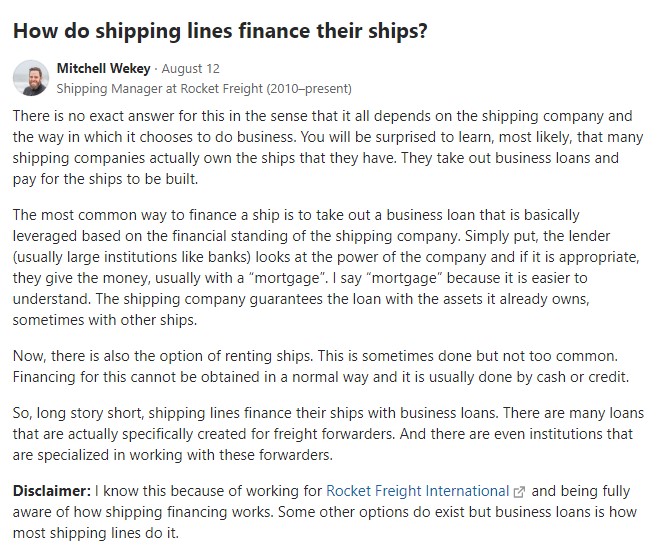
You can also write a story and include details about your business. Basically, you should never leave a concise answer and then paste a link. You need to offer assistance to the person asking the question. Do it in the best way you can. Also, Quora is just one of the options available. Anything similar, from Yelp to Reddit, can work, as long as you post good, comprehensive, and honest answers.
3. Correct Shady Business Names Used By Your Competitors
Google wants to create an accurate experience for its users. Your competitors most likely do not think about it in the same way. They want traffic, and they want it fast.
As a result, many businesses, both small and large, take full advantage of GMB (Google My Business) to bolster their SEO effects on Google, and they have every right to do so. However, it's honestly pretty sneaky and pretty grey hat, if you know what I mean.
Fortunately, you can solve this problem.
An example tactic of a business that tries to abuse Google My Business is an old black hat strategy, keyword stuffing. That's just inserting and exaggerating on the target keyword inside your profile and is done to rank better.
Let's take a look at such a business that uses keyword stuffing, most likely without knowing or simply because of bad SEO advice (Sometimes though, businesses do know what they are doing. This is the worst-case scenario):
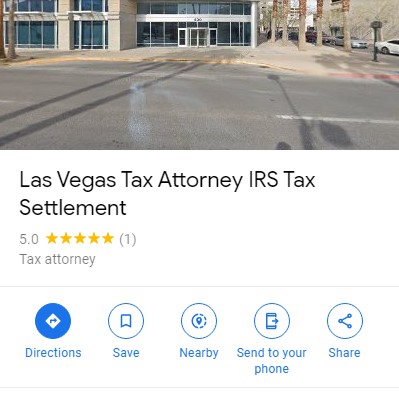
The added phrase “Las Vegas Tax Attorney IRS Tax Settlement” is keyword stuffing. When you do not know if the business you look at uses keyword stuffing, visit its website. The official business name should be listed in the footer area or on the contact page. This is not possible with the example above because the attorney uses keyword stuffing there too:

Usually, the business name appears in the footer or on a legal/contact, like with this law firm:
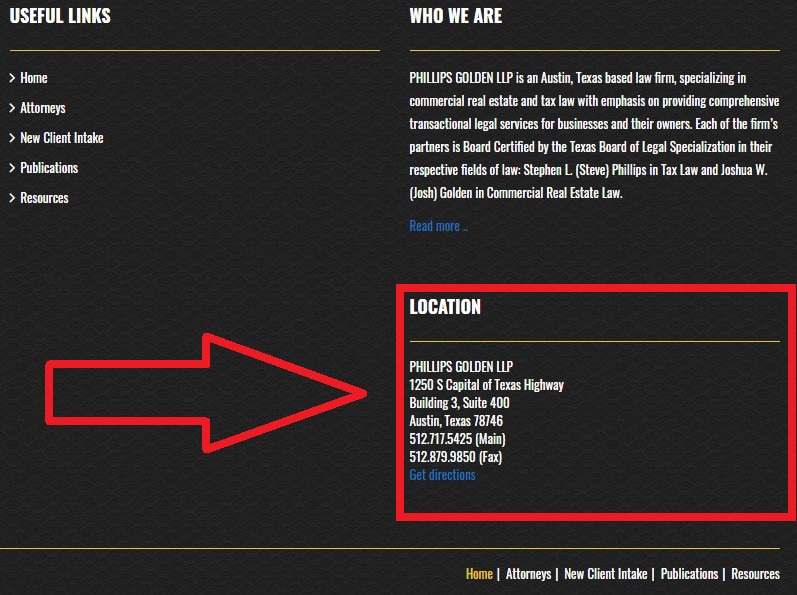
Getting back to the example with the GMB listing, the real name is surely different than what is listed in the Google listing. We do not even know the real name of the firm.
This violates Google’s GMB terms.
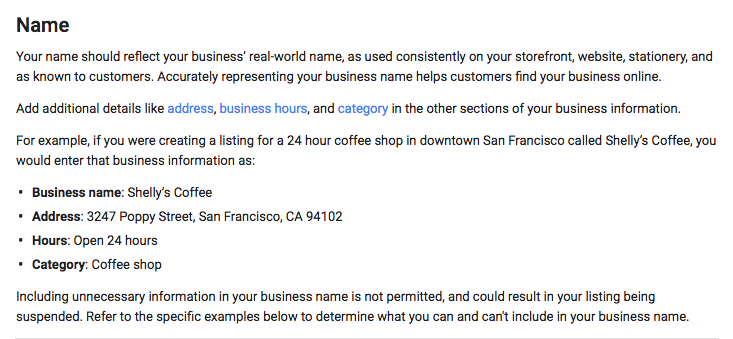
Since this post is about killing your competitor's SEO, let's help Google improve the user experience offered. You can do this right from the Google Maps listing page. Help Google out and help yourself out and click “Suggest an edit.”
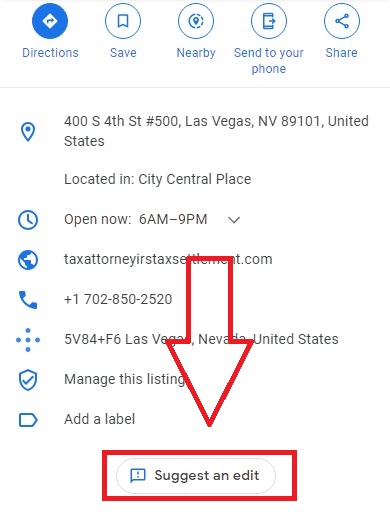
Now you can edit the field that you think is inappropriate or inaccurate for the business listing.
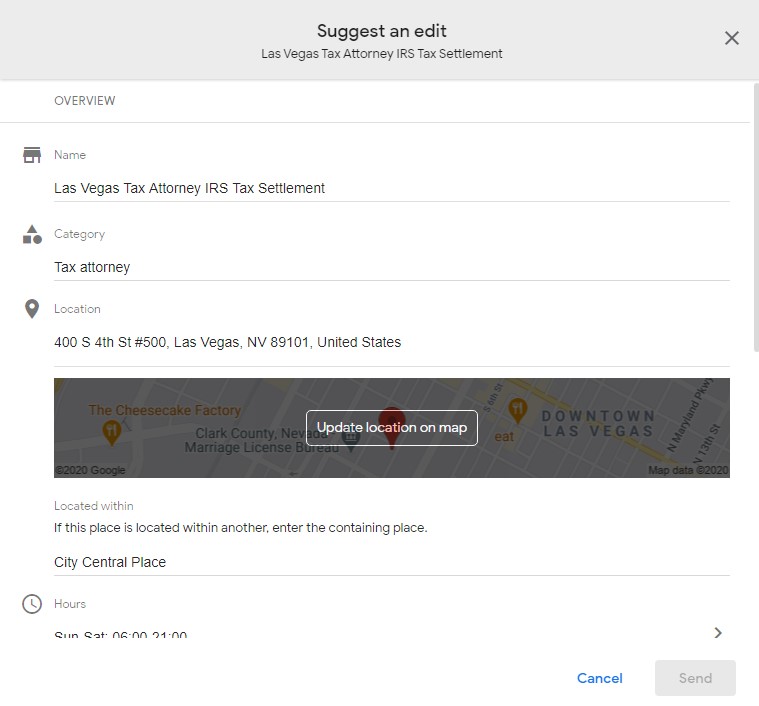
Write the changes that you see appropriate and then click "Send". In our example, we do not even know the real business name. In this case, after you click "Suggest an Edit", select "Close or Remove". You will get to this:
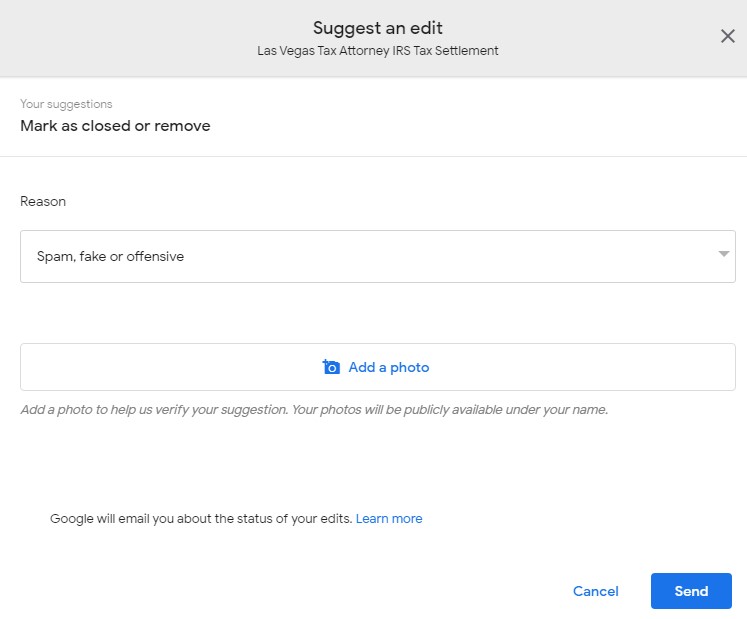
Choose "Spam, Fake, or Offensive" and click "Send."
Your job is done. Google receives the notification and the suggestion you made. As a result, it will remove the scam listing or change the keyword-stuffed business name. Usually, you receive an email with an official response, so you know if the edit was rejected or accepted.
After the change is accepted, you can expect your competitor to drop in SERPs.
Most businesses using keyword stuffing and similar tactics only rely on shady strategies. When you take active steps to remove the effects of those practices, they need to start from zero. In the same time, you climb in rankings because you use correct strategies to beat your competition.
Are you going to employ and try out any of the above strategies?



